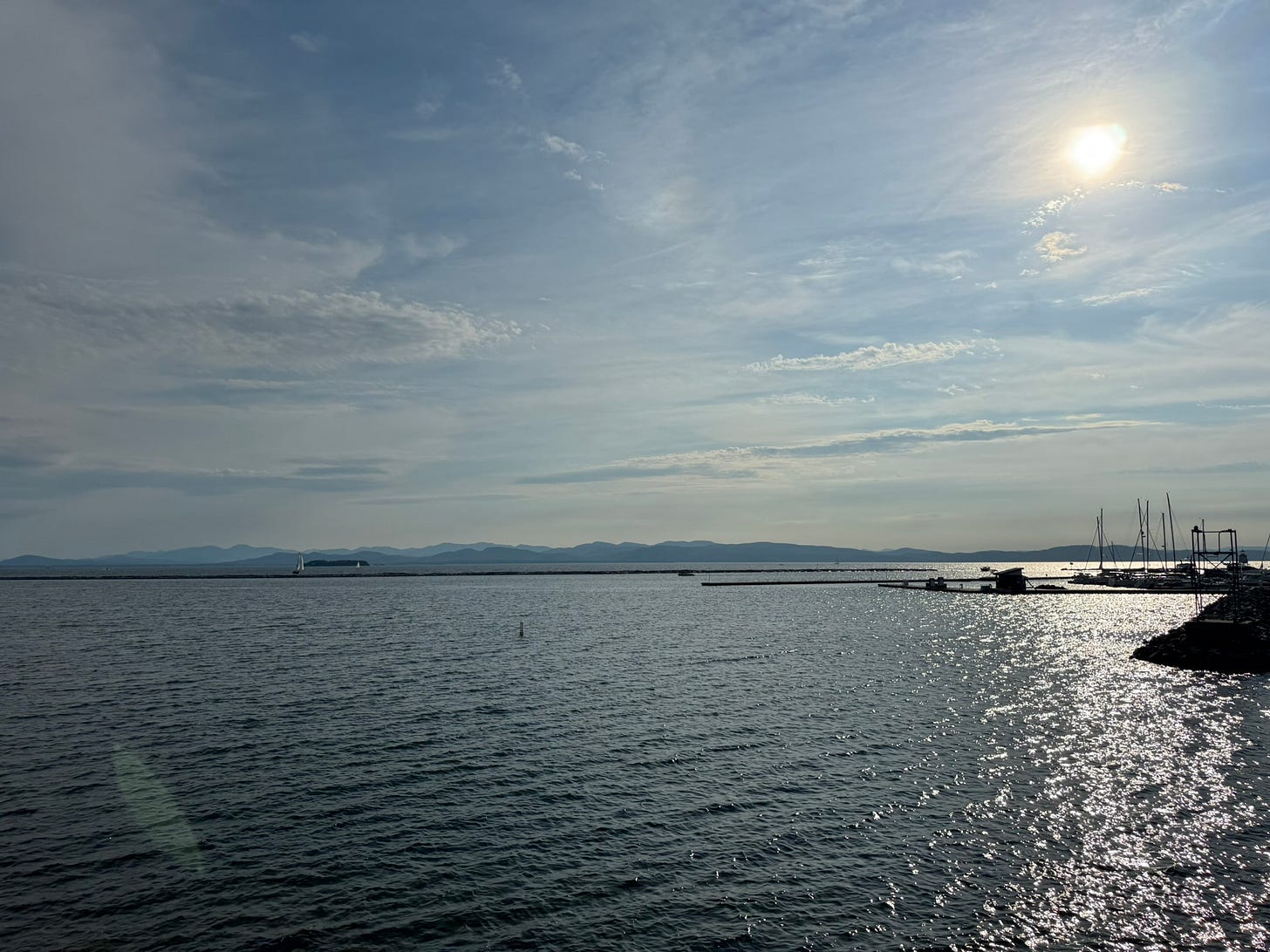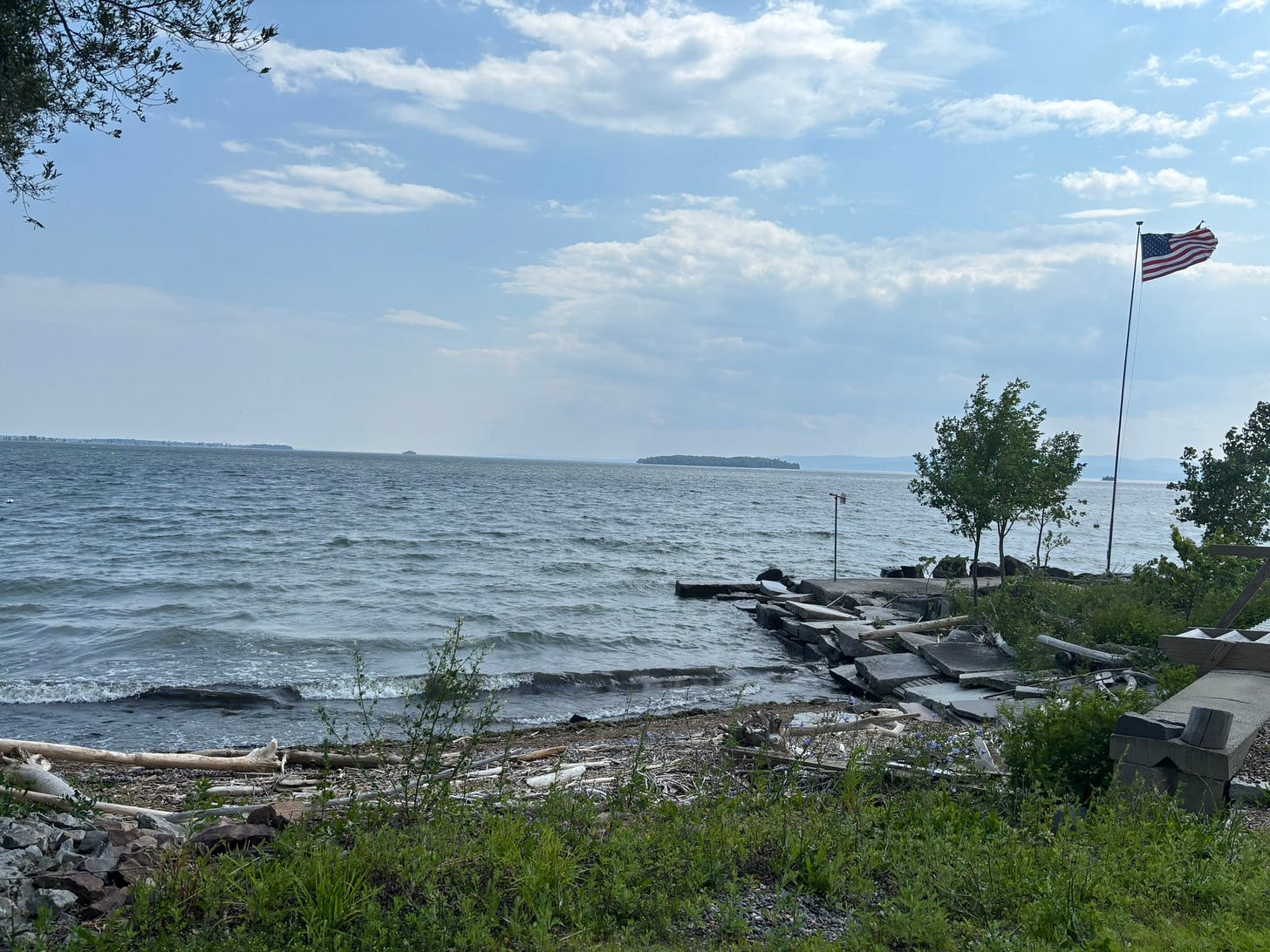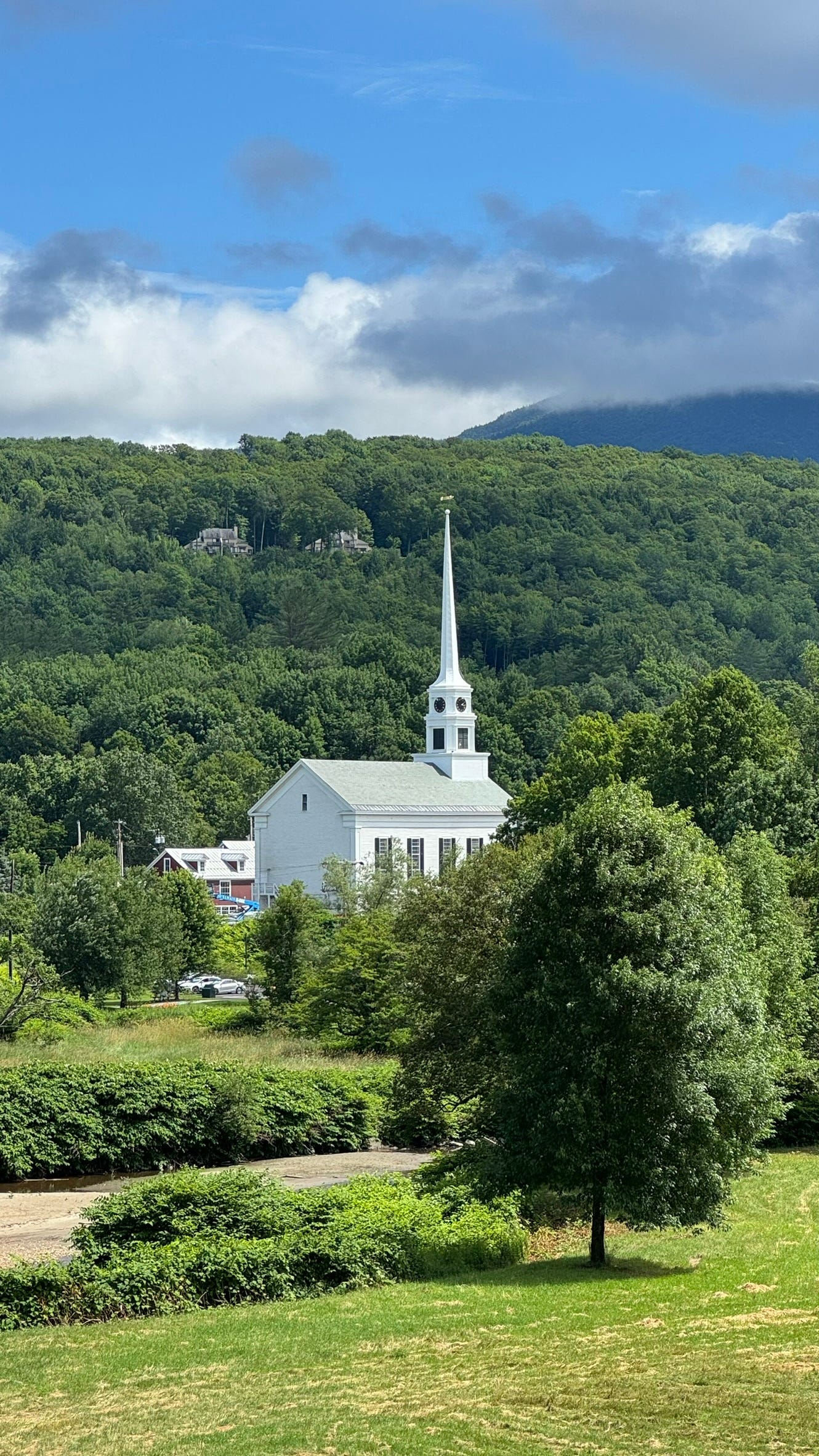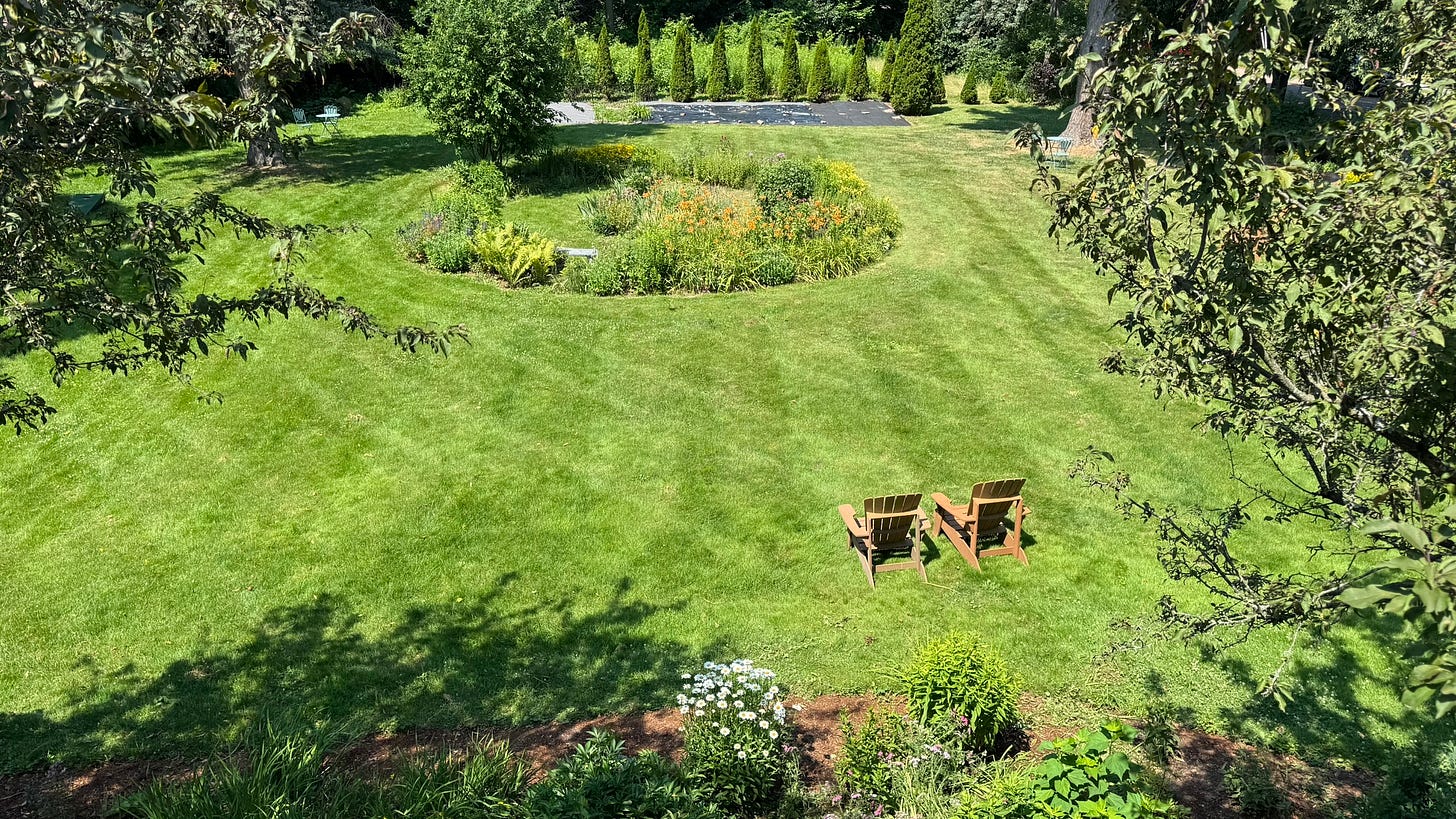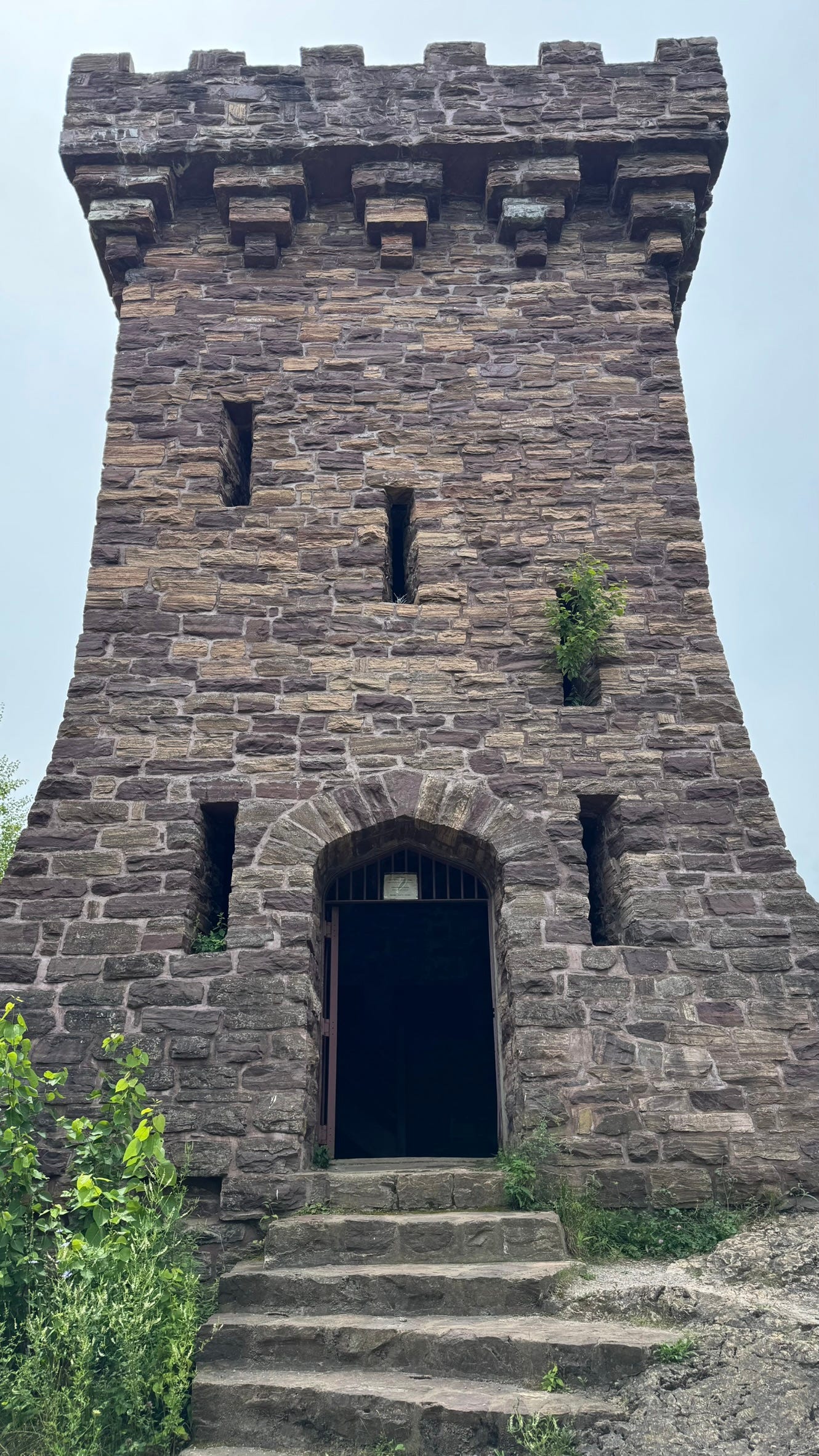Vermont - 49th State Unlocked
Notes on my recent visit
I recently returned from a trip to Vermont as part of my 50th-year goals—this one being having visited all 50 states within my life. I hit Vermont (the 49th) while still 49 years old, and Alaska (the 50th) will come after the big 5-0.
While I’ve been to New England quite a bit, my expectation was that Vermont would be a different flavor. In general I expected it would be more openly progressive-left (indeed it was, but less aggressive than I feared), more insularly quaint and rustic (somewhat but less bucolic than I hoped), and more untouched by modern problems (not at all, sadly). Perhaps I was woefully naive like Andy Farmer.
Here are my notes in no particular order other than some arrangement for grouping.
Lake Champlain is very beautiful and worth the visit. Take a cruise on the Spirit of Ethan Allen.
Vermont is less different than Oklahoma than either they or Oklahomans may realize. Even more so Burlington and Norman, OK. Consider:
A few fireworks heard in Burlington in the late evenings of July 5-7. I didn’t expect this—a resemblance of at home. My political and attitudinal assumptions plus being next to Massachusetts were all fireworks are strictly banned led me to assume private actors wouldn’t dare exhibit such rebellion. Good to hear I was wrong.
Sitting outside enjoying a cigar on Saturday night, I can hear cars revving and racing in the distance.
Very much Burlington is a college town in the middle of historic, rustic New England as the pull of modernity exerts its influences—good and bad.
Walking around core Burlington, one finds an interesting mixture of very well-kept gardens with so-so lawns as well as poorly kept outdoor spaces. There is a mixture of very grand but slightly rundown houses along with many in more severe disrepair—is this a function of college renters plus the extra cost of bad winters?
Nearly no sports team identification on people—this is very much not like at home.
Another thing different than home: Surly waitstaff and other customer service people. The agent at the rental car desk at the airport had the enthusiasm of a prison cafeteria line worker—I made her smile just briefly by deliberately smiling at her. This surliness was not always the case but enough that it is quite noticeable to those of us used to southern hospitality and friendliness. And I’m not simply misidentifying northern impersonal detachment. This was downright bad attitudes in outward display.
In the same vein: Forced gratuities are NOT an Oklahoma thing. I’m not talking about the flip-the-screen-around phenomenon we all suffer. On several occasions from counter-service-only to full-service restaurants, a 20% gratuity was required. At the notable exceptions to this obligatory generosity, service was notably exceptional. Socialism fails yet again.
Free stuff in trunks and boxes along the sidewalk outside of nice homes for the homeless... solve for the equilibrium. I do not have enough information to draw sharp conclusions other than to say compassion and help is good but enablement is bad. Is this generosity just aid as part of a bigger solution, or is it simply a feel-good effort in lieu of actual solutions? Does the incentive effect (cost) outweigh the assistance effect (benefit)?
As others have pointed out, the generous level of government services combined with the small working age population makes for a bad, unsustainable combination.
The preponderance of litter was surprising as were, but probably shouldn't haven't been, the many strung-out people littering the streets. Also, a LOT of graffiti. The city isn't at the level I'd put Portland, Oregon today, but it also isn't at the level of Portland circa 10+ years ago, which was more the preconceived notion I had in my mind before arriving.
As much as they may hate the comparison, my summary of the greater Burlington area is it is New England's Ozarks (okay, not to this extreme). They share what are (perhaps) surprisingly similar raw literacy rates, and I would assess their rates of economic illiteracy to be similar as well in everything from accommodating dependency to land-use restrictions. Given that the cost of living is about 30% higher in the Burlington MSA compared to Springfield, MO, the Ozarks might be the more successful economic story—look at median household income and poverty rates below. $61,488 in Springfield is about equal to $80,000 in Burlington.
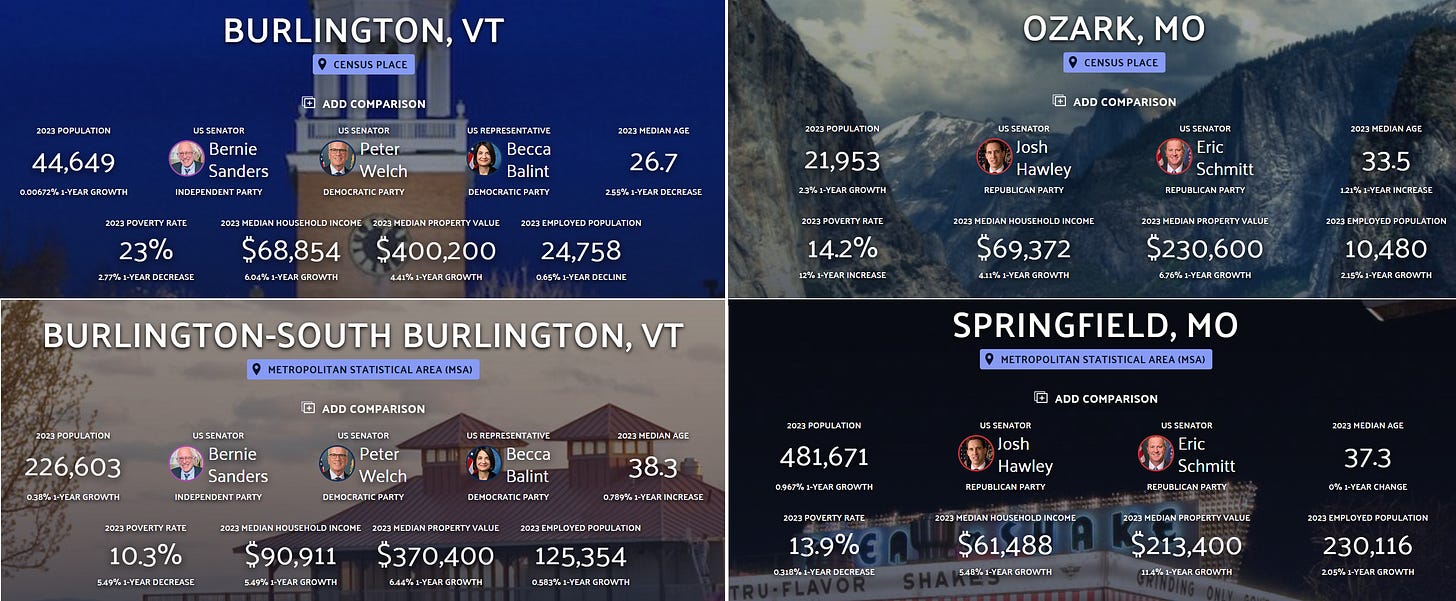
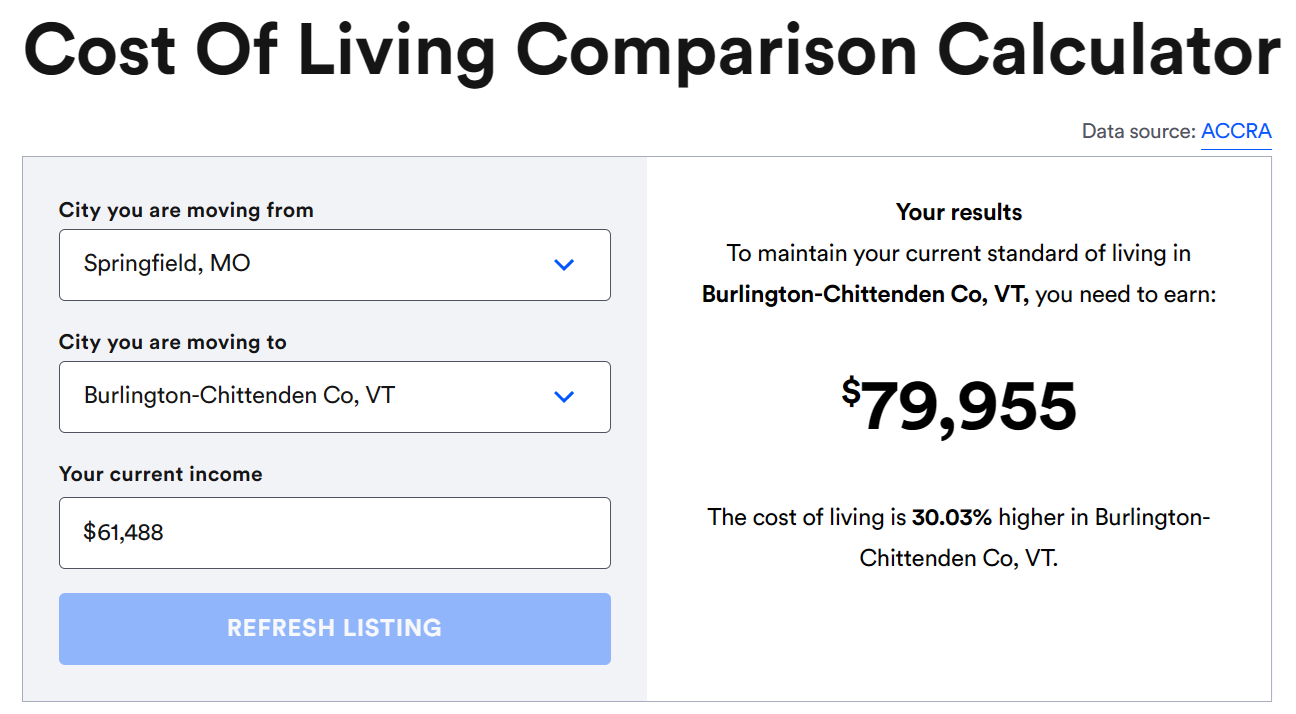
At our bed and breakfast, Blind Tiger Hotel, we did not have TV in the room or anywhere in the large house. I didn't notice this until late at night on the second day. I wasn’t looking for one. Just happen to notice. It was nice. Aside from not having a rural location, it shared many attributes (in a good way) with Newhart’s Stratford Inn. I do recommend.
Sunny days: I was surprised to learn that Burlington has fewer sunny days than Seattle. Gemini tells me, “Seattle averages around 150 sunny days annually, while Burlington averages only 58 clear days, with 101 days experiencing at least some sunshine, . . . This means Seattle gets significantly more days with sun, even though both cities experience a lot of cloud cover.” Oklahoma City leaves them both in the dust at 235. Never underestimate how much weather (SAD) affects the personality of a place and the demeanor of its residents.
A short digression on bike lanes. I saw them everywhere in Burlington—lanes not cyclists. Overwhelmingly the bikes I saw were on the dedicated trails like the Island Line Trail serving walkers, joggers, and cyclists (manual and electric) alike. It stands to reason a place like Vermont would be at the forefront of virtue signaling with bike lanes, etc. (see the recycling note below). Set aside the question if bike lanes actually promote safety (spoiler: they don’t). How well utilized could these lanes actually be while incurring the constant expense of tighter, slower traffic among other costs? It gets VERY cold and VERY snowy in Vermont.
Where I suspect they fail in bike lanes, I think they excel in street parking policy. Burlington does a very good job pricing parking. At $9/hr in the heart of the city's entertainment and tourist district, they made a space relatively easy to find with traffic fairly minimal. The prices appropriately decreased monotonically as distance extended away from the harbor. Aside from whether this is anti-car bias or intentionally good economics, the result is great. My only complaint/suggestion is with the parking app itself. A short digression: While an improvement from the historic meter and the centralized kiosk, the parking apps leave money on the table and encourage overuse. The alerts and ability to add time remotely from the phone is wonderful, but why not also rebate me for cutting it short? Here is an example from my trip. I parked to go into a restaurant for lunch. I put 1 hour 45 minutes on the meter at a cost of about $.37 per 15 minutes. (Probably too cheap, they haven’t mastered parking.) I’d rather aim high at such a low cost even though I was sure I’d only need the spot for about 1 hour. Sure enough, I was done eating within an hour, but I lingered since it was pleasant in the restaurant, August First, and because I got nothing for leaving early to open up my spot. Why not offer to buy back my time at a 50% discount? Think about how much this would help in the more expensive zones.
I was surprised to see almost all four-way intersections with stop signs were four-way stops rather than just two-way with a through street. I didn’t mind it. Makes things slower, but slower isn’t always a bad tradeoff from driving risk. I was also surprised to see that Vermont allows street-side parallel parking facing the wrong direction (toward traffic). I didn’t like this. Adds to confusion about if a road is one way among other costs.
Another winning move: Not running emergency sirens . . . something I noted from my trip to Paris. Burlington does it even better taking to heart Ben Naddaff-Hafrey's case against sirens as covered in Malcolm Gladwell's Revisionist History. Flashing lights are on but sirens or horns only sound at intersections as needed. And they seem to do the Parisian thing in not putting sound out at top volume unless necessary. Overall this probably has the additional, beneficial effect of causing drivers to pay a little closer attention to the potential for emergency vehicles.
A short digression on my rental car - Dodge Hornet et al. midsized SUVs. This car sucks. It very much sucks. DO NOT recommend. There was nothing intuitive in the vehicle. Why must I turn on the video display EVERY drive?!? Why must I turn on cruise control as an option EVERY drive? I was starting over every time I started the car. I thought the Hyundai Santa Fe I rented on a recent trip was bad. This one took it to new lows. Limited to mid-sized SUVs, I would buy and drive a base-level Honda or perhaps Toyota before I would consider a fully-loaded Dodge Hornet at the same price.
A very kid friendly atmosphere basically everywhere—and a lot of tourists with kids, which surprised me. It is not otherwise a great destination for kids aside from some outdoor activities. Related: A lot of teenagers and college-aged people out and about, which is quite good to see. This does allude to the barbell problem in Vermont's population—plenty of young and old with relatively few prime working age. This is a place you leave until you come back after you’re done working.
Recycling: No one can possibly think this is working. It is EVERYWHERE. The multi-bin process that is seen at most airports can be found at nearly any place to put trash. And how effective could this be? Assume 95% accurate sorting compliance, which is ridiculously generous. That still leaves tremendous re-sorting at the facility—assuming this is happening at all and it isn’t just being landfilled. Assume the full recycling is happening. How much difference could this make? Forced recycling at the consumer level be it from government edict or social norm is a solution in search of a problem. And, do you remember what I said above about litter in Burlington? Hmm . . .
Dining:
Leunig's Bistro was a bust—especially on service. The food tasted okay, but not one dish was fully coherent. The sauces were wrong in particular. This is quite unfortunate given its history and great location.
In contrast Frankie's was excellent including service. The food was great. The cocktail was too. Go here.
Bistro de Margot was another hit on all fronts. A strong recommendation here as well.
Foam Brewers was very good on food and beer and very spotty on service. This was location for my first surly waitstaff moment on the first night.
Stowe is much more to my perhaps stereotypical expectations in vibe and style. Regardless of my inappropriate or simplistic notions, Burlington appears at times to be a struggling mess. Workforce in all cases is much friendlier in Stowe too. I highly recommend time spent in Stowe—charming and beautiful.
Overall, a great trip. A lot of fun with pleasant surprises to counter the unpleasant bursting of expectations. I would return for leaf season. However, in the summer I’ll take Cape Cod or the coast of Maine over the hills of Vermont.


